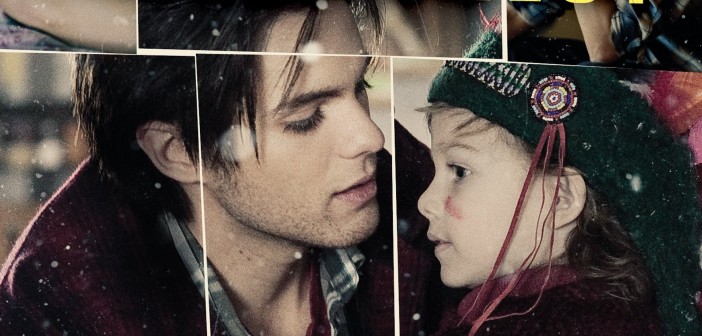A Child Has Died – Let’s Play the Blame Game
Ethan Denton (Thomas Dekker) is barely an adult himself, and yet he already has a three-year-old son named Nate (Ameko Eks Mass Carroll). They live together in the snowy peaks of Angels Crest, a small working-class community nestled somewhere within the Rockies. One morning, Ethan notices fresh fallen snow. He decides it would be fun to take his son out into the wilderness to play, and so they drive there. He then leaves Nate in the car and goes into the woods to check out a herd of wild deer. It doesn’t seem like a big deal. After all, the heat is set at maximum, the doors are locked, and Nate is safely secured in his car seat. It proves to be a monumental lapse of judgment on Ethan’s part; upon his return ten minutes later, he realizes that Nate has gone missing. The ensuing search-and-rescue effort eventually leads to the discovery of Nate’s lifeless body, half buried by the snow and located about a quarter mile away from the car.
I was initially drawn into the plot of Angels Crest, as it quickly became apparent that it wasn’t going for the obvious. I’ll bet that, after reading the first paragraph, you thought I was describing the opening scenes of a mystery thriller. Sorry to be the bearer of bad news, but in this case, your instincts are wrong. Adapted from the novel by Leslie Schwartz, the film isn’t about a needless death so much as the repercussions on the living; it closely examines the dynamics of a tight-knit community and how easily it can unravel in times of great emotional distress. It all boils down to morality – or, more accurately, how we believe our own sense of morality should apply to other people. When it comes to the death of a child, it’s not simply a matter of everyone having an opinion; it’s a matter of the need to assign blame. Someone always has to be responsible.
I said before that I was initially drawn in. As compelling as I found much of this film, I couldn’t help but find some of its narrative techniques disagreeable. Two things stick out in my mind. Firstly, some of the characters are badly underwritten while others are one-note caricatures. Secondly, all leads up to an unearned and emotionally manipulative ending that only gives the illusion of ambiguity. I don’t think this is a bad movie at all, but I am very disappointed that it never became the great movie it so clearly should have been, given its examination of attitudes and people (those that were well developed, at any rate).
For now, I’ll focus on what I liked about this movie, and thankfully, it amounts to more than what I disliked. I mentioned earlier morality and the need to assign blame; those that know Ethan, which is just about everyone in Angels Crest, have very definite opinions about him. They only intensify after he appears before a judge and enters a plea of not guilty. Some are convinced that he was a negligent father and, for all intents and purposes, a murderer. Others believe that he’s a basically decent person who simply made a bad decision. Others still believe that he was too young to have a child in the first place. It’s clear that Ethan wracked with guilt. He will spend a great deal of time researching the child safety seat Nate was strapped into. He will even buy several of them and take them apart, desperate to find some kind of manufacturing flaw.
The other part of this story is Nate’s estranged mother, Cindy (Lynn Collins). Her alcoholism, which has only gotten worse since the tragedy, is actually what landed Nate in Ethan’s custody. Naturally, she thinks it’s his fault their son is dead. As the film progresses, she begins to realize that it may not be that clear cut. At this point, it appears the discussion of morality and blame has just gotten much more interesting. If she wasn’t a drinker, would Nate be alive today? Would he have been born at all? Given their young ages, I suspect alcohol played a part in him being conceived. Into Cindy’s life reenters her religious mother (Barbara Williams). On the outside, she’s calm and caring. She even tells Ethan that what happened wasn’t his fault. But the cracks begin to show as her daughter’s behavior becomes more careless. What does she really think of Ethan? Who does she really blame for Nate’s death?
If the entire film had stuck to this level of storytelling, it would have been a true dramatic gem. Alas, we’re bombarded with superfluous subplots, all involving people who are at best indirectly involved with Ethan. The worst character is Jack (Jeremy Piven), the prosecution attorney who has what appears to be a personal vendetta against Ethan. His reasons are left a little obscure; the best we get is a vague reference to his own painful loss. Perhaps if the filmmakers had bothered to delve a little more deeply into this character, we would have had a reason to care about his hostility. And then there’s the ending, mentioned earlier. I truly don’t know what director Gaby Dellal was thinking when she decided to include it. Movies like Angels Crest don’t benefit from heavy-handed, manufactured conclusions, especially when they had not been building up to them.

